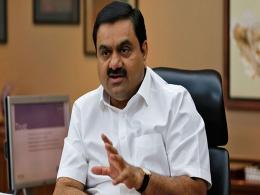The question is whether RBI, which as snipped rate twice in quick succession, will hold on to further rate cuts having snipped it twice in quick succession.
Consumer inflation for February is seen to be rising marginally again but would remain below the Reserve Bank of India’s (RBI) comfort level while industrial output growth is expected to slip further for January, as per a quick poll of economists by VCCircle.
Official statistics on both inflation numbers for February and industrial performance for January is due this week.
A poll of 24 economists shows they expect consumer inflation to rise marginally to 5.23 per cent, up from 5.11 per cent in January due to higher food prices. The average figure was culled from the median of the numbers thrown by the respondents.
This would mark the second consecutive month when the inflation would rise. Consumer inflation rose to 5.11 per cent in January after sinking to 4.28 per cent in December based on revised methodology of calculation and new base year.
The government revised the product basket used for determining the consumer price index and changed the weight shares for commodities. It also changed the base year for calculating consumer prices to 2012 from 2010 in sync with that of other national economic statistics.
The poll also forecast wholesale prices to sink further in the deflation zone to (-) 0.70 per cent due to the slump in oil prices. In January, wholesale prices declined 0.39 per cent after remaining close to zero for the previous two months.
Wholesale prices used to dictate headline inflation numbers till recently when the RBI switched to make consumer inflation its key parameter for monetary policy. It has recently tweaked the policy further and is now following a flexible inflation targeting with +/- 2 per cent around the 4 per cent mark.
The question is whether the data would push RBI to cut rates further after twice snipping the key policy rates within two months.
"Even though weak growth and low inflation does indicate monetary easing is likely, RBI has already acted and I don't think they will cut rates right away. There is a Fed action which is due before the April meeting and we would like to see how the markets react post that. Overall I expect another 25 bps cut but the timing may differ depending on how the market behaviour is towards the FOMC meeting," said Upasna Bhardwaj, economist, ING Vysya Bank.
The RBI is scheduled to hold its next bimonthly monetary policy review on April 7.
Meanwhile, the economists polled expect the industrial activity to slip further with output growth skidding to 0.70 per cent for January from 1.70 per cent in December. Data released last week on the index of eight core industries showed growth slowing down to 1.8 per cent in January. The eight core industries comprise nearly 38 per cent of the weight of items included in the Index of Industrial Production (IIP).
The government presented its first full term Budget last month, with an aim to improve investments in infrastructure and to crowd-in private investments and hoped to boost manufacturing sector with lower taxes on inputs.
While the efforts to boost infrastructure was widely applauded, manufacturers felt the government needed to come with a stronger push to lift the flagging industry. RBI data collated on bank credit in the country shows the manufacturing sector remains in trouble with flow of credit near zero or in negative zone for most segments, reflecting poor investment sentiment.
A recent report by OECD of Composite Leading Indicators highlights growth in the Indian economy firming up, but a lot would depend on how the industrial sector shapes up in the coming months.
"If reforms mentioned in the Budget materialise and are implemented in the proper manner, in the right direction and at the right time, things should be better for India," Madhumita Ghosh, research head at Augment Financial, said.
(Edited by Joby Puthuparampil Johnson)







